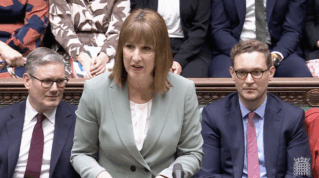It would be fair to say that Labour has not wasted any time since the election in ensuring there is real energy and noise around their commitment for change. This week will surely be the week where they focus on what it means strategically for their departments, what can be tackled quickly versus what needs to be done thoughtfully and based on a longer-term plan and, we hope, real evidence.
The inbox of education secretary Bridget Phillipson will undoubtedly be piling high with a range of stakeholders and influencers trying to ensure their messages land and are put on the top of the to-do list. I do not envy her or her team!
Among those messages today is one from Lord Sainsbury, backed by former prime minister Gordon Brown, calling on the government to commit to the T Level programme and the defunding of similar technical qualifications.
It is agreed by many, myself included, that technical education needs to be a priority.
A good technical education system will be pivotal for closing skills gaps and driving economic growth. Many young people are excited by the opportunities of technical education; more practical, more career-relevant and more skills-based curriculums suit them.
But they need to be the right quality programmes, at the right levels and meet the needs of the learners, which over the years have grown more complex.
We know that with 900,000 NEET young people and employers identifying the continued challenge of skills gaps, that the system is not working. Young people feel disconnected from education and opportunity.
In February we released our year-long commission on level 2 and level 3 education reform. The commission found there are clear gaps in the system left by the T Level rollout and that young people, particularly those who are disadvantaged, are at risk of falling out of the education system with a binary choice A- or T Level choice at age 16.
The practical delivery and costs of T Levels certainly, along with dropout and success rates need careful consideration before a carte blanche approach is taken.
But the answer to solving these issues cannot be to simply “do like the Conservatives did”.
In the schools world, Labour has committed to its election promises to review the school curriculum and to increase access to work experience. Careers education could also become hyper-local with greater devolution if the mayors get their way.
All of that means young people should have choices. No one is arguing T Levels shouldn’t be a valid and aspirational choice for school leavers. But qualifications are just one piece of the puzzle. When it comes to choosing what to do post-16, schools and colleges must be able to access qualifications that suit the needs of students.
Lord Sainsbury’s report today glossed over the needs of students who need to work alongside their post-16 studies, as well as those pursuing a career not covered by T Levels. There are valid and legitimate reasons why a T Level isn’t attractive to some young people, in the same way that other qualifications also have their pros and cons.
Keeping choices open isn’t about protecting vested interests as Lord Sainsbury’s report alleges. It is about having an offer that reflects the real priorities and demands of students.
I would therefore add to Bridget Phillipson’s growing inbox with a call to commit to a pause and review, and to explore with the sector how we can bring all these pieces together to simplify and improve the system. We are close but not yet there.
At the centre of the system should be Labour’s mission to breaking down barriers and ensuring our education system works for everyone.

















Your thoughts